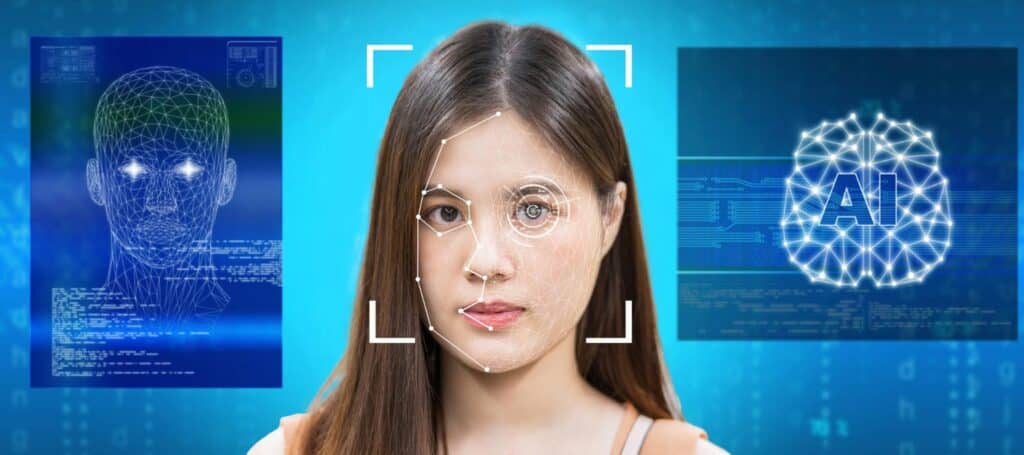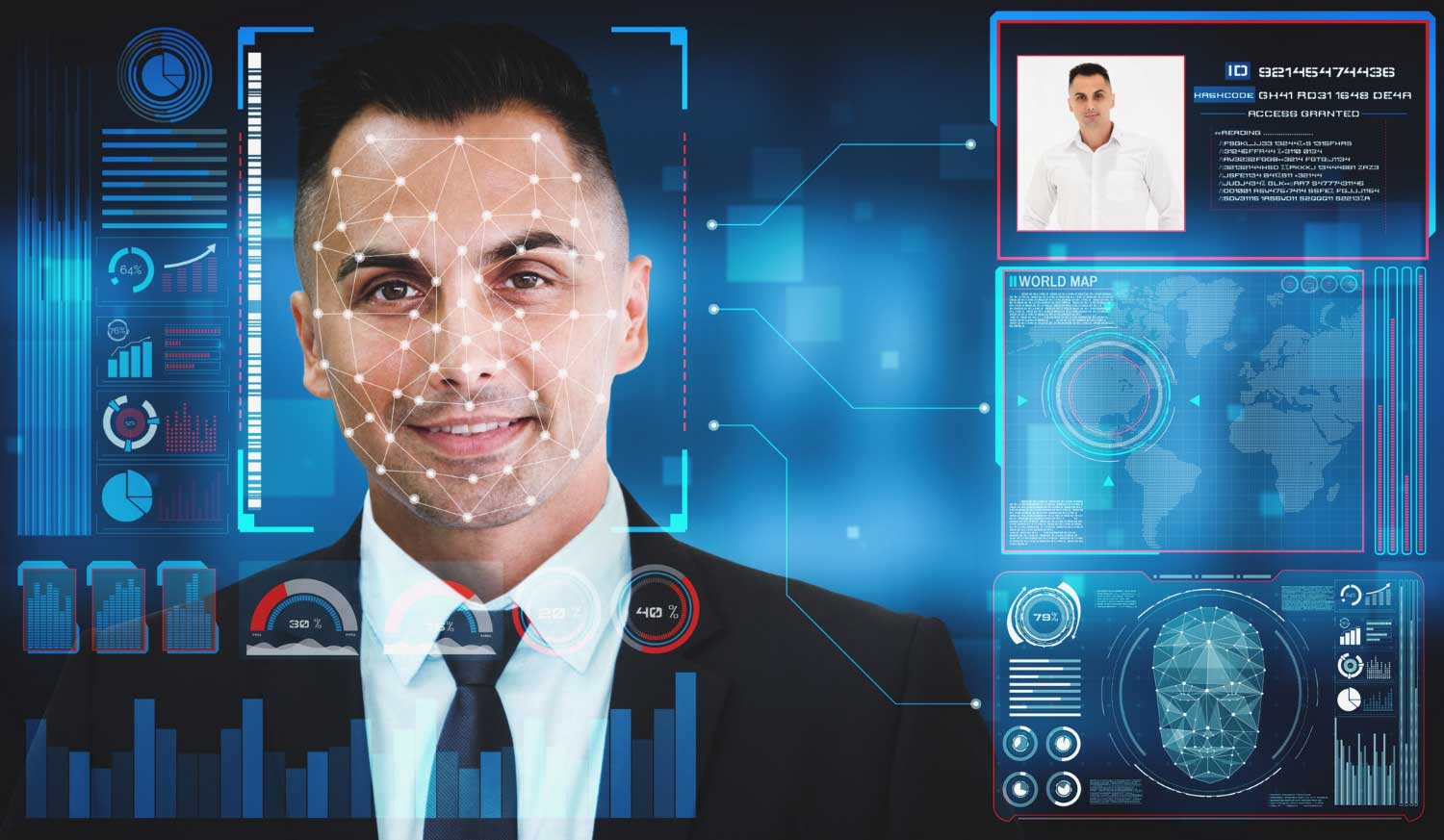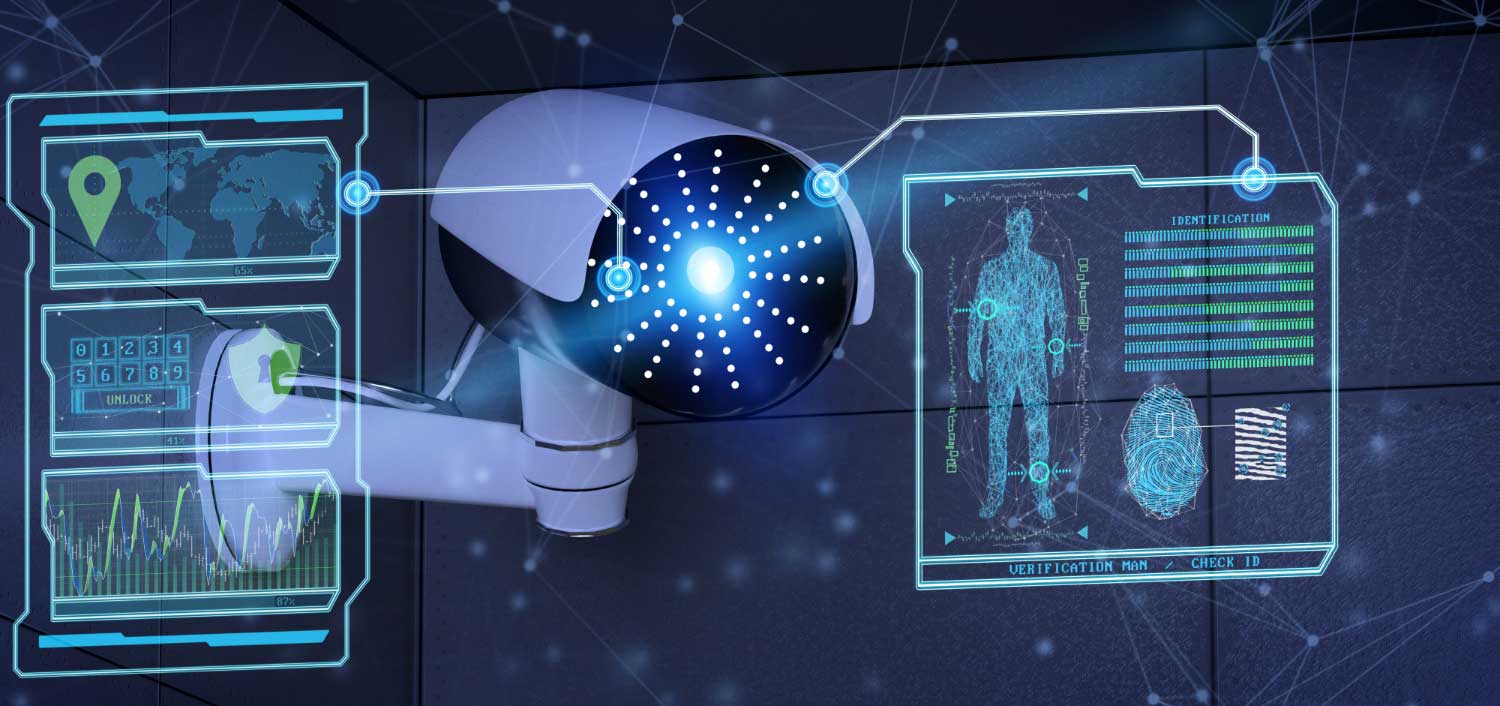Artificial intelligence (AI) has become pivotal in reshaping how we live, work, and interact with the world. AI-powered cameras and facial recognition technology promise improved security and convenience. However, this innovative technology has raised significant concerns about privacy and civil liberties. Balancing the benefits of AI facial recognition with the protection of individual privacy is a complex challenge.
The Rise of AI Cameras and Facial Recognition
AI cameras equipped with facial recognition have rapidly increased in our society. These cameras are ubiquitous in public spaces, airports, commercial establishments, and residential areas. The technology behind them is a sophisticated combination of hardware and software that allows the identification of individuals based on their facial features. You’ll find AI facial recognition in various applications, including surveillance, authentication, and marketing.
Benefits of Face Recognition Security Cameras
AI facial recognition cameras do a lot of good. The technology makes it easy to unlock your cell phone. These tools can help track license plates during a child’s abduction. They can even scan people boarding planes, matching faces against a “do not fly” list.
Enhanced Security
One of the most significant advantages of AI cameras and facial recognition technology is the bolstering of security. These systems offer an effective way to identify and track individuals in real time. In law enforcement, this technology assists in locating and apprehending suspects quickly. Face recognition surveillance cameras prevent crimes and enhance public safety.
Security cameras with facial recognition help with access control, securing sensitive facilities, and authenticating users on devices. This technology is particularly appealing to businesses and organizations that prioritize security.
Efficiency and Convenience
Beyond security, AI cameras and facial recognition provide efficiency and convenience in daily life. In retail, businesses use these systems to analyze customer behavior and preferences. AI cameras enable personalized marketing strategies, something consumers say they want. In healthcare, they streamline patient identification and medical records access. AI facial recognition cameras ensure care delivery to the right individuals at the right time.
Similarly, AI cameras and facial recognition can enhance the customer experience in the hospitality and entertainment industries. Face recognition surveillance cameras can simplify check-ins and help tailor services to individual preferences. This convenience extends to smart homes and devices. AI cameras make for a more user-friendly experience by recognizing and adapting to the preferences and needs of the people living there.
Rising Concerns Over Security Cameras with Facial Recognition
AI cameras and facial recognition also come with privacy concerns. There is potential for mass surveillance and the abuse of personal data. The ubiquitous presence of AI cameras in public spaces can lead to the constant monitoring of individuals without their consent. Misusing facial recognition data can have severe consequences, such as identity theft or unauthorized access to personal information.
Both private industries as well as government facilities use video surveillance. Today, more than 70 million video surveillance cameras are all around you in businesses, buildings, and on street corners. It’s a trade-off most of us can live with to some degree, sacrificing privacy for better security.
But the Brookings Institute cautions, “It is important to note that these trade-offs do not affect all individuals equally. In fact, surveillance and data collection have disproportionately affected communities of color.” Face recognition surveillance cameras are less accurate when detecting people of color. Harvard University says, “Despite widespread adoption, face recognition was recently banned for use by police and local agencies in several cities, including Boston and San Francisco. Why? Of the dominant biometrics in use (fingerprint, iris, palm, voice, and face), face recognition is the least accurate and is rife with privacy concerns.”
AI algorithms are not infallible. Errors can occur when matching faces, leading to innocent individuals mistakenly associated with criminal activities. These false identifications can have devastating consequences, tarnishing an individual’s reputation and even leading to unjust arrests.
The use of facial recognition technology raises ethical and civil liberties concerns. Many argue that the technology risks enabling a surveillance state, where individuals are constantly under scrutiny by both public and private entities. Constant surveillance stifles freedom of expression and discourages individuals from engaging in public discourse and activism.
AI Facial Recognition and The Need for Regulation
The debate over AI cameras and facial recognition has prompted calls for comprehensive regulations to strike a balance between security and privacy. Governments, technology companies, and civil rights organizations are working to establish guidelines and rules for the responsible use of this technology.
For instance, the European Union’s General Data Protection Regulation (GDPR) imposes strict rules on collecting and processing personal data, including biometric data like facial recognition. It empowers individuals to control their data by requiring consent for how organizations use it.
There is a growing push for federal legislation to regulate facial recognition technology in the United States. Some states have already implemented restrictions, but there is a need for a comprehensive framework that addresses the technology’s use in various sectors, from law enforcement to commercial applications.
Tech companies are also taking steps to address AI camera privacy concerns. Some have voluntarily stopped selling facial recognition technology to law enforcement agencies, acknowledging the need for a more robust regulatory framework.
Security cameras with facial recognition are just one of the tools employed by Pro-Vigil. AI-powered software is rapidly evolving. We help companies balance security and privacy to use these powerful resources – protecting their business and assets while not infringing on the privacy of innocent people. Talk to the Pro-Vigil team today about your physical security footprint. We are the leader in 24/7 real-time surveillance.
Q&A
AI camera facial recognition is a cutting-edge technology that combines artificial intelligence with camera systems to identify and analyze human faces. It leverages deep learning algorithms to detect facial features, allowing for real-time recognition and analysis. Various sectors use these tools, from security and access control to marketing and entertainment. AI camera facial recognition offers enhanced security, streamlines processes, and provides a convenient and personalized user experience. However, it also raises concerns about privacy, surveillance, and civil liberties, prompting the need for comprehensive regulations and ethical considerations in its deployment.
Organizations harness AI cameras for many beneficial applications. In healthcare, they aid in patient monitoring. Smart traffic cameras optimize traffic flow, reducing congestion and accidents. Conservationists use AI cameras to track and protect endangered species. In agriculture, these cameras assist in crop monitoring and pest control. In education, AI cameras facilitate remote learning and monitor classrooms for safety. Public spaces benefit from security and surveillance, deterring crime and improving public safety. These are just a few examples illustrating how AI cameras can deploy for the greater good, provided we use them responsibly and ethically.










